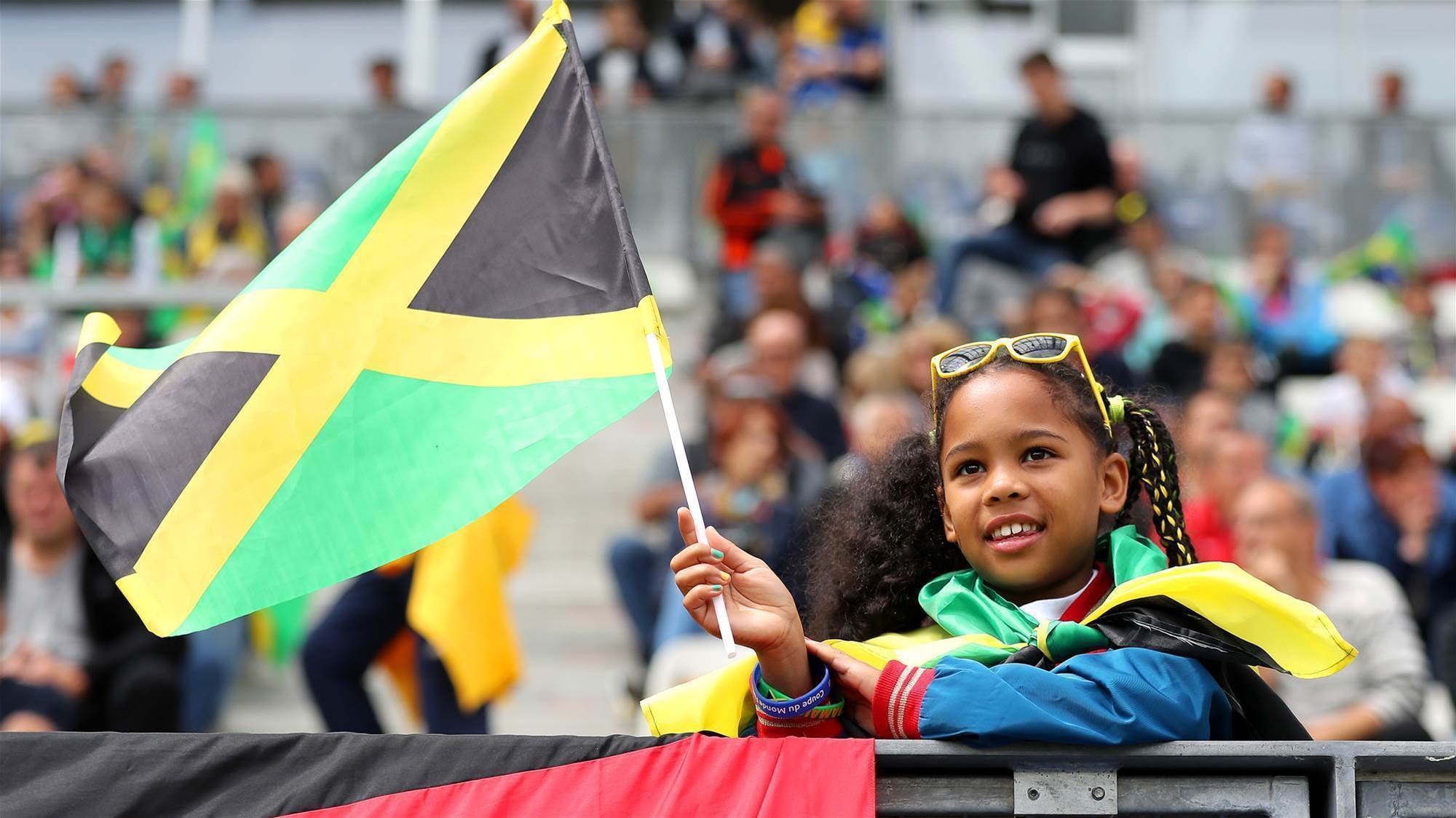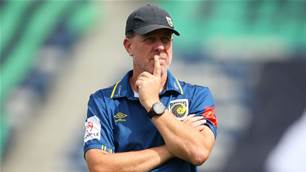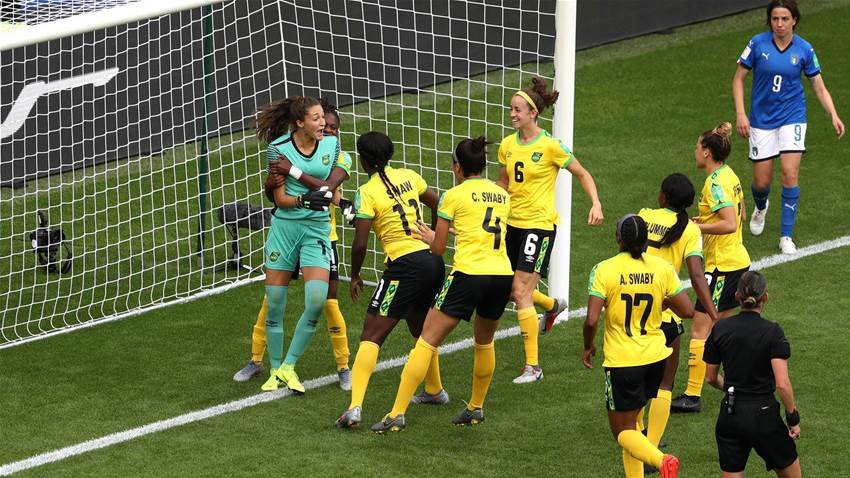The Reggae Girlz will be leaving a lasting legacy on women's football in Jamaica no matter how their World Cup journey goes.
It's been a FIFA Women's World Cup full of stories that show just how much the women's game is growing but also how much it still needs to grow.
Jamaica is one of four nations making their World Cup debuts in France but it hasn't been an easy journey to get to this point. It was just five years ago that the women's football program restarted after a six-year hiatus.
The journey to just prepare for the World Cup was a big one, there has been an organisation ready to help make the players dreams a reality.
"Each camp was gonna come about $70,000 to $80,000 and the coaches were looking at five to six camps," President and co-founder of the Reggae Girlz Foundation (RGF) Michelle Adamolekun said.
"I think the budget fell short, the gap that we saw, was somewhere between $300,000 to $400,000.
"That was going to be the gap from a fundraising standpoint, and the Federation has been soliciting sponsors since then."
The RGF is a not-for-profit is a movement to support the growth of Jamaica women’s football and nurture those players from grassroots up by providing the tools, coaching and educational support. They want to level the playing field by creating more opportunities, increase access, and visibility for young women in the sport.
So when the Reggae Girlz qualified for the World Cup it was a historic moment as Adamolekun explains.
"We're hearing young girls say I want to be a Reggae Girl, I want to play football," she said.
 Players across the country have the opportunity to develop both athletically and incorporate that with academics with the RGF.
Players across the country have the opportunity to develop both athletically and incorporate that with academics with the RGF.
"We want to be able to provide them with an opportunity to basically set their goals high and achieve those goals and get the support that can make a difference in their lives as they continue to develop and grow," Adamolekun said.
Growing up in Jamaica isn't like the movies.
For forward Khadija Shaw, who grew up in Spanish Town, her family found themselves embroiled in the violence and corruption. Captain Koyna Plummer struggled with education while defender Den-Den Blackwood mother didn't have the money to send her to school or training, so at times she wouldn't attend.
That's why this foundation means so much.
The RGF was born out of Adamolekun experience in seeing the differences between the United States and Jamaican football system. Her daughter, 18-year-old forward Olufolasade Adamolekun, played from Under-14 to Under-18 for the US national team.
"It was an amazing experience in the sense that, in hindsight, I didn't realize how blessed they truly were in as it relates to resources," Adamolekun said.
At the age of 16, Olufolasade was asked to play in the Under 20's Jamaican women's team during the 2018 CONCACAF Women's U-20 and U-17 Championship qualification but there were no camps to prepare for the tournament together.
Every one relied on each other to sort of their own preparation.
"That's when it really it started to hit me that there was a serious gap," Adamolekun said.
Speaking to parents there weren't many positives, they had tried before to get help to have more resources but it hadn't worked.
"I talked with the coaches and said, 'I've got an idea, what are your thoughts about creating a foundation, kind of a fundraising arm for the reggae girls so that we can ensure we can really start to create a feeder pool, and really start to develop young girls?'," Adamolekun said.
"I pulled together a couple of parents that were equally as passionate around what we could do it, we put our heads together.
"Everyone was like, 'Oh, they tried this before, but it never worked out, no one's really been able to pull it off' and I'm like, 'Well, wait till you meet me'."
The Foundation started in January last year with a four-pronged strategy with the first to build awareness for the fans and the supporters around the gaps and opportunities that exist in women's football; secondly, to fundraise to create an academy in Jamaica; thirdly to create a sustainable Women's Premier League in Jamaica and finally to provide support for all the national teams.
It's hard to know how much making the World Cup means to football players in Jamaica because in this case, it's much bigger than the 23 players plus coaching who are in France. The team will leave a lasting legacy on the next generation of women's footballers and the importance of that is something that cannot be explained.
"I don't think we're going to really be able to understand that appreciate the historic nature of what these young ladies have done on what I consider to be limited resources," Adamolekun said.
"It's going to propel football in Jamaica. Young girls are going to now start to believe that they too, can do it."
However, the RGF won't be able to continue their work if sponsors don't continue supporting the national team and it's something that weighs on Adamolekun mind.
"That's what keeps me up at night. My goal is to ensure that it doesn't stop after this World Cup," she said.
After the World Cup, Jamaica has a full calendar including Pan American qualifiers and Olympic qualifiers plus the U20's and U17's World Cup qualifiers.
"This is a marathon and not a sprint, and you've got to invest now, for the future. It's a big exciting time all the way around and I think it's just historic, and it's bigger than what we think it is," Adamolekun said.
"We can only imagine we won't know what this means for years to come.
"Success of any young girls shouldn't be based on the haves and the have nots. I think every young girl deserves the opportunity to have a dream and be able to fulfil that dream."
If you want to learn more about the Reggae Girlz Foundation click here.
Related Articles

Champion A-League coach set to join Premier League giants

Emerging Socceroos star set to sign for MLS club













